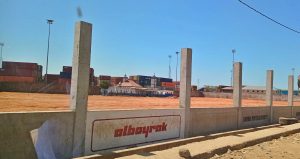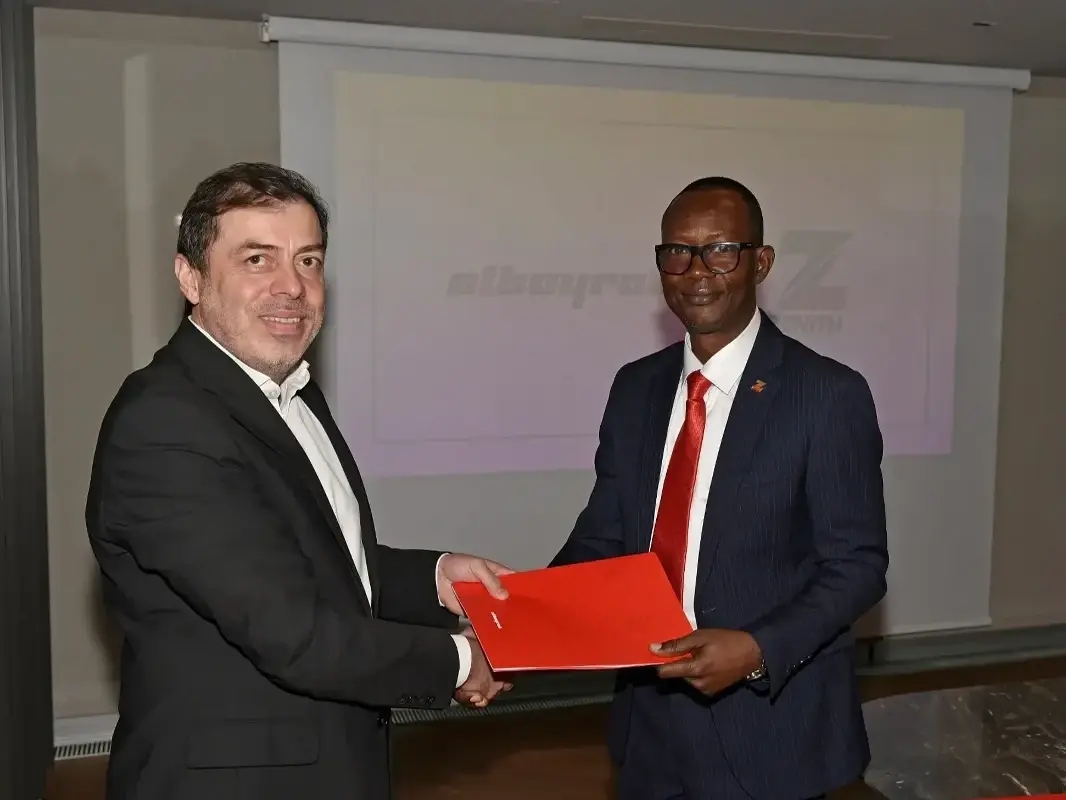Gambiaj.com – (Banjul, The Gambia) – A major rift has emerged between the Gambia Ports Authority (GPA) and the Albayrak Group over the latter’s decision to secure a €13.5 million loan from Zenith Bank without prior approval, a move the GPA says violates key terms of the Port of Banjul concession agreement.
The disagreement, contained in an internal letter from GPA Managing Director Ousman M. Jobarteh dated 15 October and verified by The Gambia Journal, underscores a deepening disagreement between the two partners over the financial management of one of the country’s most strategic infrastructure projects.
Earlier this month, Albayrak announced that it had signed a project finance loan agreement with Zenith Bank to fund the ongoing rehabilitation of the Port of Banjul—an initiative it described as an “innovative financing model” for African infrastructure.
The deal was celebrated as a breakthrough, marking one of the few cases in which a commercial bank directly funds a major port project on the continent.
However, according to the GPA, Albayrak entered into the agreement “without prior notification to the Contracting Authority” and failed to submit the required financing documents as stipulated under Clause 8.4 of the Concession Agreement.
GPA: Loan Breaches Concession Terms
The GPA’s letter reveals that the original concession terms required Albayrak, as the sponsor, to provide a minimum of €19 million as equity investment for the Banjul Port rehabilitation—not as borrowed capital.
By replacing part of that equity with debt, GPA argues that Albayrak has altered the approved financing model and potentially encumbered the port’s concession assets with external liabilities.
“The Zenith Bank facility alters this approved financing model, effectively substituting debt for equity and introducing a potential encumbrance on concession assets,” the letter stated. “Such deviation, without prior written consent of GPA, undermines the agreed risk allocation under the Concession Agreement and cannot be approved.”

The authority further emphasized that its 20 percent shareholding in Alport Banjul Limited—the special purpose vehicle (SPV) managing the concession—is a non-cash equity contribution, meaning GPA bears no financial liability for any loans or debts incurred by Albayrak or the SPV.
A Crisis of Trust and Transparency
The development has triggered serious concern within GPA and among observers who had previously questioned Albayrak’s financial capacity to deliver on its 30-year concession commitments.
When the Turkish company assumed management of the port, many Gambians—including industry experts—voiced doubts about its ability to mobilize the required investment without heavy reliance on borrowing.
This latest dispute seems to confirm those fears, casting a shadow over Albayrak’s long-term financial credibility and the transparency of the concession arrangement.
A senior GPA official familiar with the matter described the issue as “a red line,” warning that allowing a third-party loan to be secured against concession assets could “expose national infrastructure to commercial risk without parliamentary oversight.”
Implications for Business and Public Confidence
The fallout between GPA and Albayrak could have wider implications for investor confidence and public trust in public-private partnerships (PPPs) in The Gambia.
Analysts warn that disputes of this nature can discourage future investment if seen as signs of weak regulatory oversight or opaque contract management.
For Albayrak, the rejection of its loan arrangement raises questions about how it intends to finance the remaining rehabilitation works—particularly given that the concession agreement envisioned full upfront equity financing.
Despite the disagreement, the GPA’s letter stops short of prohibiting Albayrak from seeking external funding altogether.
Instead, it calls for any future loan arrangements to be fully compliant with the concession’s financing structure and explicitly guaranteed by Albayrak, without creating any debt obligations for GPA or the Government of The Gambia.
As the dispute unfolds, it remains unclear how Albayrak will respond to GPA’s rejection of the Zenith Bank loan.
But what is certain is that the controversy has deepened the cracks in a partnership already viewed with skepticism by many Gambians—and may force both sides back to the negotiating table to prevent further strain on one of the country’s most vital economic assets.











One Response
My humble advice to GPA is maintained ports interest rather than foreign interest, any loan they took in the name of so called concession will be paid by Gambians in case they failed to honour their liability.
And likely they’ll failed, because of their previous records in other countries where they have Similar agreements